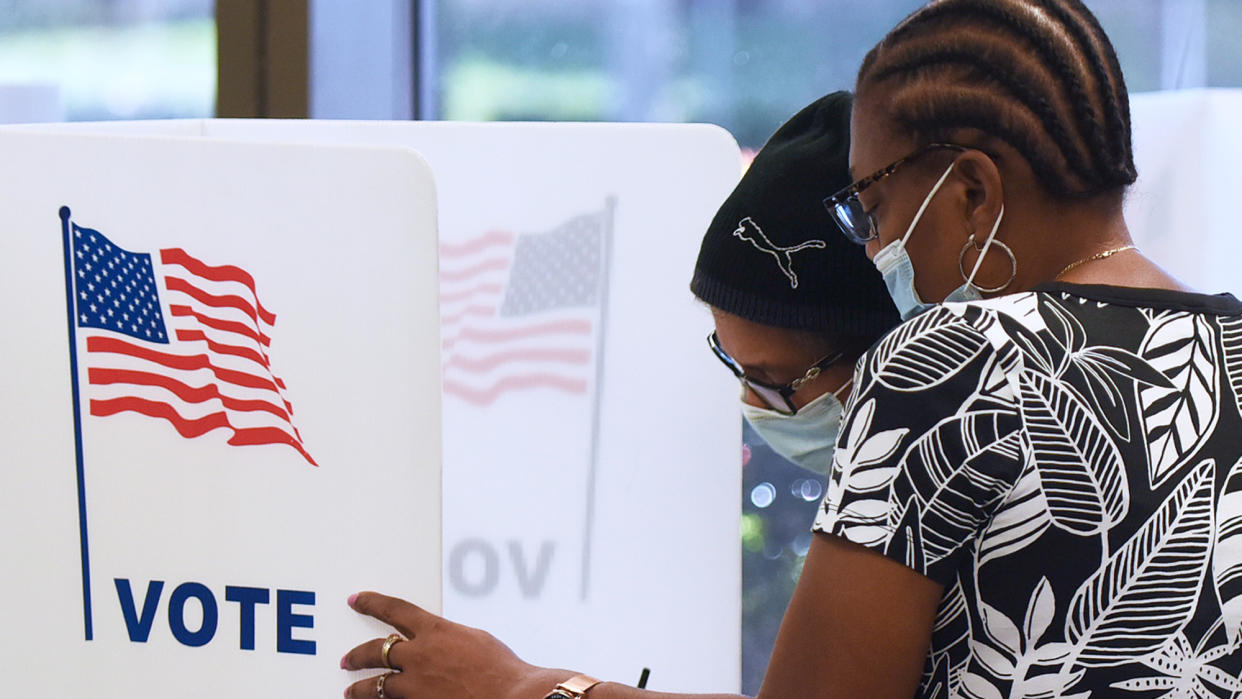Black and Hispanic voters: why they’re turning right

- Oops!Something went wrong.Please try again later.
- Oops!Something went wrong.Please try again later.
With November's election looming, President Biden has a big problem on his hands, said Russell Contreras on Axios: his party is losing black and Hispanic voters. These voters have long been "one of the most loyal parts of the Democratic coalition", but that's rapidly changing.
A recent New York Times poll found that non-white Americans, who backed Biden by a margin of nearly 50 percentage points in 2020, now favour him over Donald Trump by just 12 points – 56% to 44%. Among Hispanic voters, Trump now actually leads, by 46% to 40%. In Gallup polling, the share of Latinos who consider themselves Democrats dropped from 57% to 47% between 2020 and 2023.
It's a worrying trend for Democrats, who until recently had reason to believe that the swelling ranks of Hispanic voters would deliver them a solid majority for decades.
A remarkable 'political realignment'
Admittedly, these are just polls, said Nate Silver on Substack, but a similar, smaller shift is evident in election data. One study found that, between 2012 and 2020, Democratic candidates went from getting 97% of the black vote, in a two-way clash with Republicans, to 90%; their corresponding share of the Hispanic vote fell from 70% to 63%.
A remarkable "political realignment" appears to be under way, said Jennifer Medina and Ruth Igielnik in The New York Times. Wealthy white voters who would once have been a natural part of the GOP base are going Democrat, while a slice of minority voters, conversely, are going Republican.
Among those backing Trump are: Latinos who work in law enforcement along the Mexican border; "Cuban Americans in Florida averse to policies they view as approaching socialism"; evangelical Latinos; and young second- and third-generation US-born Latinos who are more likely to identify with and vote like their white peers.
A 'welcome' change
This shift may mystify progressives consumed with identity politics, said Dan Hannan in the Washington Examiner, but it's not surprising. Ronald Reagan used to describe Hispanic Americans as "Republicans who don't realise it yet". What he meant was that, in time, this demographic group would start voting "as entrepreneurs, churchgoers and government sceptics rather than as an ethnic minority that had been arbitrarily placed in the 'oppressed' rather than 'oppressor' column". So it has turned out.
We should welcome the fact that minority voters feel less bound by party loyalties. It will be beneficial for them. "When one party takes you for granted, and the other doesn't even bother trying, your political influence plummets."
It will be good for politics, too. If they can't win through appeals to loyalty and identity, candidates will have to rely on intellectual persuasion. "And that, when representative government is in decline globally, is an unambiguously good thing."

